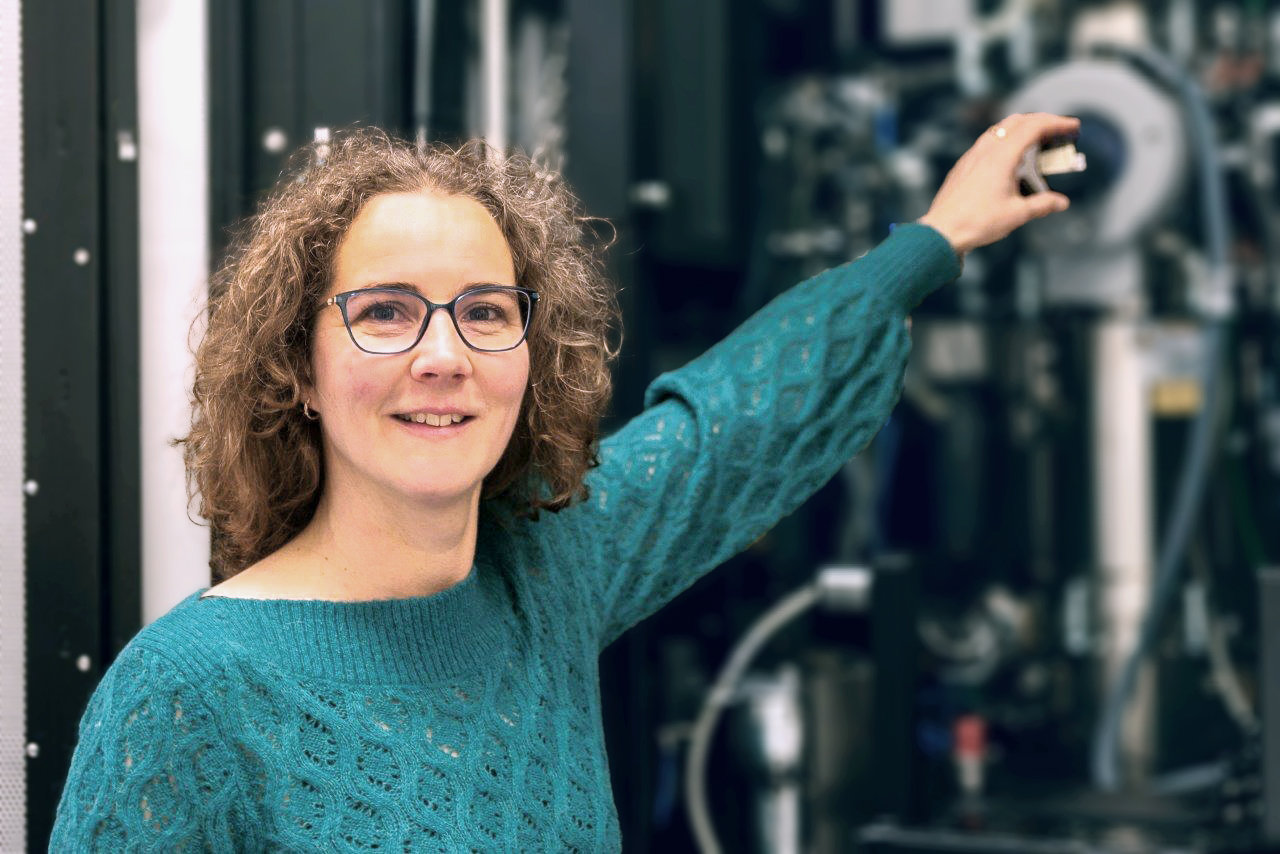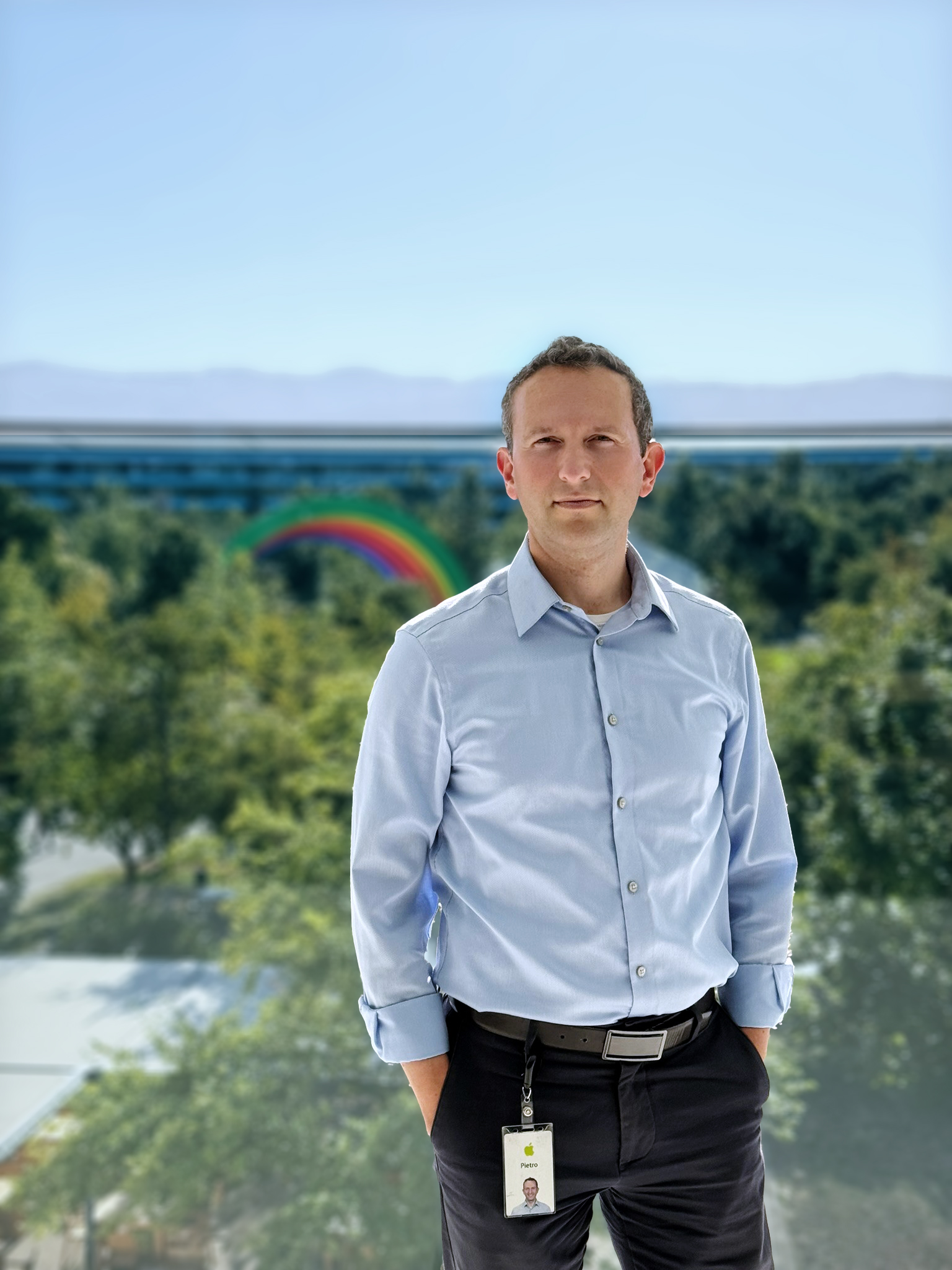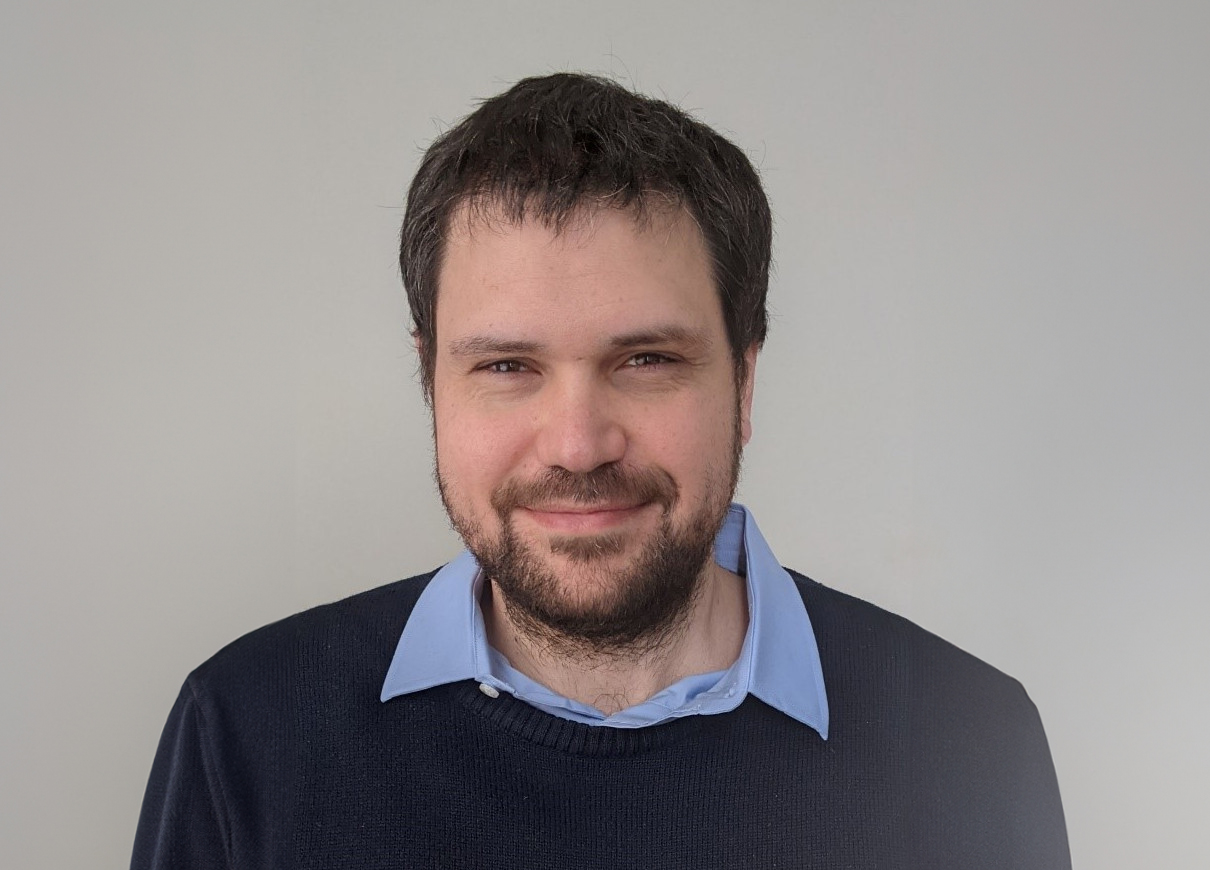8
Career
Meet Els Kok, Pietro Binetti, and Michele Cotrufo
Els Kok
R&D Director (ThermoFischer)
Innovating at interfaces
She likes to go off the beaten track. Physicist Els Kok decided to pursue her PhD in an Electrical Engineering group at TU/e, and deliberately started her career in industry at the operations engineering department, instead of at the R&D department that would be the common route. Her personal motto: ‘It is by connecting people at the interfaces of disciplines and departments that you can make an impact.’
Read more
Living the dream
He always knew he wanted to pursue a career in industry, preferably in the US. From his current position as an Engineering Manager at the Apple headquarters in Cupertino, California, TU/e alumnus Pietro Binetti reflects on how he arrived at his dream job.
Read more
Pietro Binetti
Engineering Manager (Apple)
Michele Cotrufo
Assistant Professor (University of Rochester)
Benefits of branching out
During his time as a PhD researcher at TU/e, Michele Cotrufo had his doubts if his research in nanophotonics was not too scattered over different subjects. Looking back now, he is grateful that he seized the opportunity to explore different research areas. ‘I always encourage my students to exploit their years in grad school to get a flavor of different topics. A broader background will always be beneficial later.’
Read more

‘It is by connecting people at the interfaces of disciplines and departments that you can make an impact.’
Els Kok
Innovating at interfaces
She likes to go off the beaten track. Physicist Els Kok decided to pursue her PhD in an Electrical Engineering group at TU/e, and deliberately started her career in industry at the operations engineering department, instead of at the R&D department that would be the common route. Her personal motto: ‘It is by connecting people at the interfaces of disciplines and departments that you can make an impact.’
Els Kok studied applied physics at the University of Twente, and came to Eindhoven in 2003 for her PhD project. It was her thirst for knowledge that made her decide to pursue a PhD, she recollects. ‘Photonics is a nice combination of optics, materials science, and chip design and fabrication. After finalizing my Master’s project on the topic, I felt I did not know everything there was to know. And after 6 years in Twente, I wanted to go someplace else and gain some new perspectives.’
After defending her thesis Kok moved to industry, where she found a job as a product engineer for transmission electron microscopes at FEI company, which later became Thermo Fisher Scientific. ‘I started in operations engineering, which is in between R&D and manufacturing. Basically, operations engineering makes sure that new products are manufacturable and serviceable, and that the production engineers understand what steps are critical to deliver the required specifications.’
Instrumental step
People were surprised when she told them she started at operations, Kok says. ‘With my PhD degree, I would surely want to join R&D? But looking back, that step has been instrumental in my career. At operations, you experience a fast learning curve when it comes to the technology. In R&D, I probably would have been working on a very specific topic. That makes it way harder to obtain a helicopter view over the entire system. And that is what you need to make the right design choices.’
Over the past fifteen years, Kok has held a myriad of positions in the company, ranging from product and system engineer to her current job as director of R&D. ‘I like working on the interface of different disciplines and departments. I have collaborated with people in the factory, in R&D, but also with account managers responsible for customer contacts, always being highly interested in what they need to know. What is important in negotiations with customers, what technical training can help people do their jobs better, how can we make people thrive?’
Even as a director of R&D, being responsible for all group leaders and competence managers in the innovation branch of the company, she still makes sure to visit the factory every once in a while. ‘It helps, both for the people actually putting our systems together and for my own work to see how new ideas and decisions affect the daily work at the factory. And staying grounded with our products simply keeps my own work fun.’
Even after fifteen years of working on electron microscopes, Kok still is in awe of the products her company develops. ‘We develop microscopes that are capable of visualizing atoms with a 50 picometer resolution, and we can image for instance the structure of the coronavirus. These are fantastic, extremely high tech systems, challenging our technical abilities to the max. Every day, I feel privileged to be a part of that.’

‘I strongly believe that you can lead people in any given technical domain only if you have prior hands-on experience with the underlying technology yourself.’
Pietro Binetti
Living the dream
He always knew he wanted to pursue a career in industry, preferably in the US. From his current position as an Engineering Manager at the Apple headquarters in Cupertino, California, TU/e alumnus Pietro Binetti reflects on how he arrived at his dream job.
It was during his studies in Bologna when Italian-born Pietro Binetti first fell in love with the opto-electronics field of study, the electrical engineer recalls. ‘I really enjoyed the optics classes. Towards the end of my courses, I applied for an Erasmus+ scholarship to go abroad for half a year for my final MSc project. My optics professor had a solid connection with Meint Smit, so I seized the opportunity and moved to Eindhoven.’
At what is now called the Photonic Integration group, Binetti worked as a master student on the characterization of non-linear interferometric optical circuits for signal processing. ‘As a result of my positive experiences, I decided to apply for a PhD position within the same group and stay for a few more years.’
Life-changing
Though he had always been, as he puts it himself, ‘better cut for industry than for academia’, Binetti never regretted his decision to pursue his PhD. ‘Besides getting the opportunity to deep-dive into a subject I loved, Meint Smit’s group was internationally recognized for their work. I knew this position would open doors to a future career, whether academic or in industry. Now, 20 years after, I still think my time in Eindhoven shaped my career and my life.’
His PhD project aimed at achieving a higher degree of integration of photonic ICs with their interfacing electronic ICs. ‘It was a successful program, which resulted in some of the world’s first heterogeneously integrated photonic ICs on silicon.’ Since Binetti finished his PhD in the midst of a recession, staying in academia offered him the best stepping stone for moving to Silicon Valley. For 3.5 years, he worked as a postdoc at the University of California, Santa Barbara, on multiple research programs in the field of photonic integrated circuits. ‘That additional experience helped me build an even stronger resume, which landed me a job as a technical lead – working on opto-electronic module hardware development for applications in telecommunications and data communications – at JDSU, before it became Lumentum, in the heart of Silicon Valley.’
Hands-on management
Several years into the job, in 2015 Binetti moved onto engineering management at Lumentum. In 2018, he joined Apple to pursue a new challenge. ‘Hardware for datacom and telecom were starting to become commodities. So I decided to change to consumer electronics, which is a fast evolving market with an inherently higher need for innovation.’
At the very beginning of his Apple career, Binetti deliberately took a step back from management and started off as a Module Lead for the engineering development of the 2020 iPad Pro LiDAR Scanner module. ‘I strongly believe that you can lead people in any given technical domain only if you have prior hands-on experience with the underlying technology yourself.’ And now he is living his dream. ‘I currently hold the responsibility to guide a sizeable engineering team through the research and development of camera and depth modules that hundreds of millions of Apple users around the world purchase, enjoy, review and praise today and – hopefully – in the future. It does not get any better than that!’

‘I always encourage my students to exploit their years in grad school to get a flavor of different topics. A broader background will always be beneficial later.’
Michele Cotrufo
Benefits of brancing out
During his time as a PhD researcher at TU/e, Michele Cotrufo had his doubts if his research in nanophotonics was not too scattered over different subjects. Looking back now, he is grateful that he seized the opportunity to explore different research areas. ‘I always encourage my students to exploit their years in grad school to get a flavor of different topics. A broader background will always be beneficial later.’
Cotrufo came to Eindhoven in 2012, after obtaining his Master’s in Physics from the University of Padova, Italy. ‘I knew the Netherlands to be a great place for doing research in physics and engineering. Among other factors, the country has a unique geographical advantage: within a one or two hour commute you have access to almost any sort of skill and expertise.’ The fact that in the Netherlands PhD students receive a competitive salary also played a role in his decision to leave Italy for Eindhoven, he smiles.
In the research group of Andrea Fiore, at the Photonics and Semiconductor Nanophysics group, Cotrufo investigated how different kinds of artificial nanostructures could be used to control light localization and emission. ‘Along the way, I branched out into different directions. For example, I went to AMOLF for short internships in the groups of Ewold Verhagen and Femius Koenderink. Besides gaining new knowledge, these excursions into different fields also allowed me to broaden my network.’ This came in handy when, after obtaining his PhD, Cotrufo was looking for a new challenge.
Return on investment
‘Through my network I came into contact with Andrea Alù, who later became my postdoc advisor at the University of Texas. And my broad background certainly was instrumental in earning a Rubicon fellowship from NWO, that enabled me to join his group in the US.’ When Alù transitioned to the Advanced Science Research Center of the City University of New York, Cotrufo decided to follow him. ‘It has been a great experience to help build a new experimental group from scratch, and to see a facility you’ve helped develop get up and running in the end.’ After COVID struck, the Italian physicist realized the time had come to move on. Since last summer he has been an Assistant Professor at the Institute of Optics at the University of Rochester.
Though he loves the research and education parts of being a scientist, as his career progressed, Cotrufo was not always sure he wanted to stay in academia, he admits. ‘You need a strong motivation to deal with the bureaucracy and job insecurity that comes with a career in science,’ he states. ‘For example, I have been here at Rochester for a couple of months now, and I haven’t yet gotten time to do any research at all.’
Still, the TU/e alumnus is full of plans. ‘The great thing about Rochester is that it offers a major in optics, so there are a lot of students who are excellently equipped for my type of research. My lab will develop optical metamaterials, that is, artificial materials that possess unique optical properties. This is interesting both from a fundamental research perspective and from an applications point of view, for example in the fields of augmented reality, optical computation and quantum technologies.’